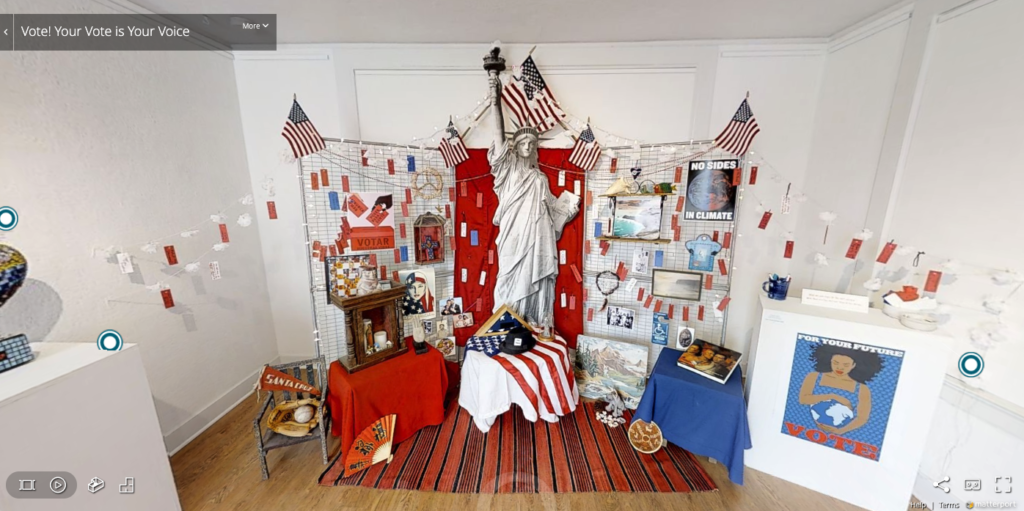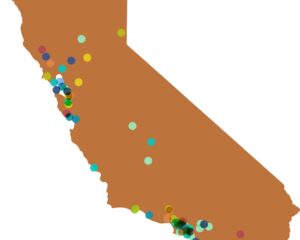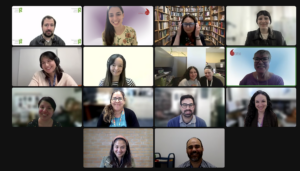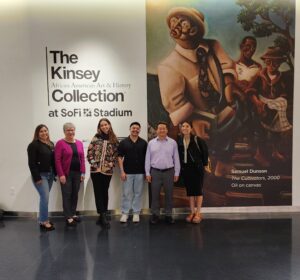In Watsonville, a new visual art and history exhibit at Pajaro Valley Arts, Your Vote is Your Voice/ ¡Vote! Su Voto es Su Voz seeks to inspire, inform and develop greater interest in the nonpartisan democratic process. Monterey Bay residents who were active in the Civil Rights Movement of the 1960s and Chicano voting rights movement in the 1980’s share their stories and perspectives through art, educational panels and documentary films. The exhibit features selections from Stanford University Libraries – Bob Fitch Archives and from Maria Gitin’s archives from their experience as young voting rights workers in the Deep South. Artifacts from Watsonville voting rights history and contemporary art that express the meaning of voting rights from a variety of perspectives will be shared. If you can’t visit in person before it closes on May 26, check out the virtual tour online. In the interview below with Judy Stabile, Board Member of Pajaro Valley Arts, we learn more about how the project was conceived, how it’s been received, and where it’s going next.
California Humanities: How did this project get conceived of/ come together?
Pajaro Valley Arts: Vote! Your Vote is Your Voice was conceptualized and proposed to Pajaro Valley Arts (PVA) by guest curator Maria Gitin in the early part of 2018. Ms. Gitin suggested an exhibit that would highlight her experiences as a young civil rights worker in the Deep South along side of Bob Fitch’s photographs from that period. Mr. Fitch, a Watsonville resident who has since passed away, photographed the Reverend Dr. Martin Luther King Jr. and other prominent black civil rights figures, as the official photographer of the Southern Christian Leadership Conference. Ms. Gitin is the author of This Bright Light of Ours, an oral history/memoir of her experience during the Freedom Summer of 1965. Over time, we worked to broaden the content of the show.
The intent of the exhibit was to present a visual art and history exhibit to inspire, inform and develop greater interest in the nonpartisan democratic process of voting. The historical aspects included the civil rights movement experiences of Gitin and Fitch, the Gomez v. The City of Watsonville case from the 1980s that resulted in district voting to enable Latinx representation on the City Council, and the development of a voting milestones timeline to highlight the struggles of minority citizens to achieve the right to vote. Maria Gitin, Samuel Torres, Carol Walberg, and Joshua Moreno researched and presented the historical elements, with Ana Ventura-Phares and Samuel Torres acting as exhibit and cultural advisors. We conducted an open call to regional artists to procure artwork for the exhibit, covering a range of subjects including the meaning of the right to vote, and a full range of issues that were of importance to the artists. Consuelo Alba, Lucien Kubo, and Amy Diaz-Infante juried the artwork. Judy Stabile acted as mentor and producer, working with PVA staff and creative volunteers to realize their visions.
CH: What has the public reception been like? Who has been coming to the exhibit and events?
PVA: The exhibit has been very well received. We have had a number of events and tours to bring in different interest groups including political, schools, and Life Long Learners. We have hosted high school and college level student tours, with five remaining tours in the next two weeks.
There have been several public programs you have offered as a part of the exhibit—panel discussions, film screenings, book signings.
CH: Have there been any particularly notable events that have happened so far? What other events are coming up?
PVA: The film screenings, panel discussions, and book talk have given a deeper historical context to the exhibit and to enlighten our community. The highlight so far has been El Florecer De La Mujeres, which focused on Watsonville women activists who started many of the non-profit health care and social service organizations in Watsonville in the 60’s and 70’s, which preceded the Watsonville v. Gomez case. This talk was filmed and can be seen on YouTube.
Our last panel discussion will be on May 18, and will be an in depth discussion of the Watsonville v. Gomez case.
CH: What’s next for the project? Will the exhibition travel?
PVA: We are in discussion with the County of Santa Cruz Elections department to bring the show to the County Building in Santa Cruz in first quarter of 2020.
—
Your Vote is Your Voice/ ¡Vote! Su Voto es Su Voz is on view at Pajaro Valley Arts, 37 Sudden Street, Watsonville, CA 94076 until May 26.
Gallery hours for are Wednesday to Sunday from 11 am to 4 pm.
This project is supported by a Humanities for All Quick Grant.
For more information, go to https://pvarts.org/articles/current-exhibit/ or contact Hedwig Heerschop, Exhibit Coordinator, 831-722-3062, Hedwig@pvarts.org or Maria Gitin, Curator at msgitin@mariagitin.com





